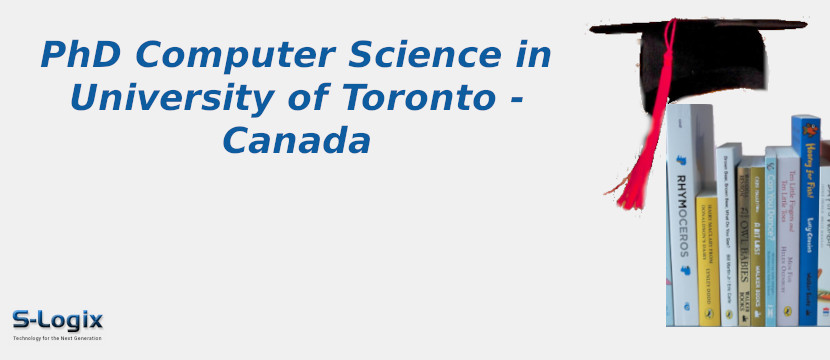The University of Toronto is a public research institution based in Toronto, Ontario, Canada, established by royal charter in 1827. The University of Toronto constantly ranks in the leading ten public universities in the world.
The University of Toronto proffers more than 700 undergraduate and 300 graduate programs in a broad variety of subjects such as Humanities & Social Sciences, Life Sciences, Physical & Mathematical Sciences, Commerce & Management, Computer Science, Engineering, Kinesiology & Physical Education, Music, and Architecture.
The University of Toronto gains the most annual scientific research funding and endowment of any Canadian university. The University of Toronto is a part of the Association of American Universities. Intellectually, the University of Toronto is acclaimed for influential movements and curricula in literary criticism and communication theory.
The University of Toronto is a hub for the first electron microscope, the advancement of deep learning, neural network, multi-touch technology, and the implementation of the theory of NP-completeness. The University of Toronto has developed into Canada-s top institution of learning, discovery, knowledge creation, and intensive research, driven to invent and innovate.
Address: 27 Kings College Cir, Toronto, ON M5S 1A1, Canada
Phone: +1 416-978-2011
Email: admissions.sgs@utoronto.ca
Website: www.utoronto.ca
University Type: Public University
• Computer Science (B.Sc. & M.Sc. Programs)
• Data Science (B.Sc. & M.Sc. Programs)
• Computational Science (B.Sc. Program)
• Artificial Intelligence (M.Sc. Program)
• Human-Computer Interaction (M.Sc. Program)
• Computer Security (M.Sc. & Ph.D. Programs)
• Computer Science (Ph.D.)
• Computer Science and Engineering (Ph.D. Program)
• Computer Science and Mathematics (Ph.D. Program)
• Computer Science and Philosophy (Ph.D. Program)
• Computer Science and Cognitive Science (Ph.D. Program)
The University of Toronto is dedicated to developing the field of computer science through research and innovation and is a center for world-renowned faculty and students committed to pioneering new technologies
• Applied & Discrete Mathematics
• Artificial Intelligence
• Computational Biomedicine
• Computational Social Science
• Computer Graphics
• Computer Science Education
• Computer Systems & Networks
• Data Science
• Database Systems
• Health & Assistive Technology
• Human-Computer Interaction
• Numerical Analysis
• Programming Languages & Methodologies
• Robotics
• Social Networks
• Software Engineering
• Sustainability Informatics
• Theoretical Computer Science
The University of Toronto in Canada is the hub of several computer science research labs and groups, delivering an exciting environment for students interested in pushing the boundaries of technology.
• Computer Graphics Lab
• Computer Systems Group
• Computer Vision Lab
• Data Systems Group
• Database Research Group
• Knowledge Representation and Reasoning Group
• Machine Learning Group
• Neural Computation and Adaptive Perception Lab
• Natural Language Processing Group
• Software Systems Group
• Theory of Computation Group
• Visual Intelligence Group
• Connaught International Scholarship Program
• Ontario Graduate Scholarship Program
• NSERC Postgraduate Scholarships
• Canada Graduate Scholarships
• University of Toronto Excellence Scholarships
• Vanier Canada Graduate Scholarship
• C.D. Howe Memorial Foundation Scholarship
• International Doctoral Research Scholarships
• International Tuition Awards
• Ontario International Doctoral Scholarships
• University of Toronto Fellowship
• The Canadian Queen Elizabeth II Diamond Jubilee Scholarships
• The President-s Doctoral Fellowship
• Ontario Trillium Scholarships
• York University Fellowship
• York University Graduate Scholarships
• SSHRC Doctoral Fellowships
• CIHR Doctoral Research Awards
• NSERC Doctoral Awards
• CIHR-IHSPR Doctoral Research Awards
Funded projects in computer science research at the University of Toronto are
• Spatial Representations for Robotic Manipulation
• Estimation of the Social and Economic Impact of Large-Scale Networked Systems
• Automated Reasoning for Model Checking Security Protocols
• Automated Identification of Cyber-Physical System Vulnerabilities
• Automated Service Composition for Autonomous Vehicle Fleets
• Automated Ubiquitous Computing for Intelligent Decision Making
• Machine Learning for Autonomous Networked Systems
• Automated Estimation of Network Performance in Mobile Environments
• Adaptive Autonomous Systems
• Automated Security Diagnostics in Embedded System
Admission Requirements
To gain admission to the Ph.D. program in Computer Science at the University of Toronto, applicants must have an undergraduate degree in a related field, such as computer science, engineering, mathematics, or physics. In addition, applicants must have a strong academic record, as evidenced by a minimum GPA of 3.5 or higher on a 4.0 scale.
Application Procedure
Applications to the Ph.D. program in Computer Science at the University of Toronto must be submitted online. The following documents must be included with the application:
• A statement of interest
• A CV
• Three letters of recommendation
• Official transcripts from all post-secondary institutions attended
• GRE scores
• TOEFL or IELTS scores (for international applicants)
• A writing sample
Once all materials have been submitted, applicants will be invited for an interview with a faculty member. After the interview, the admissions committee will review the application and make a decision.
